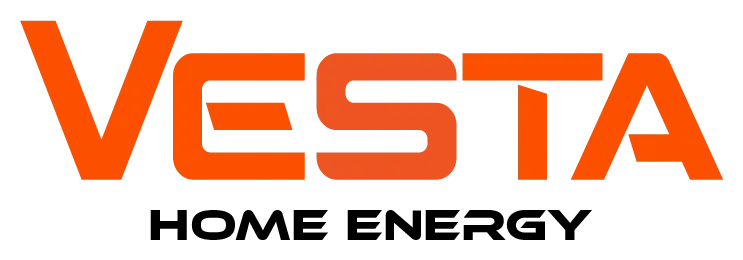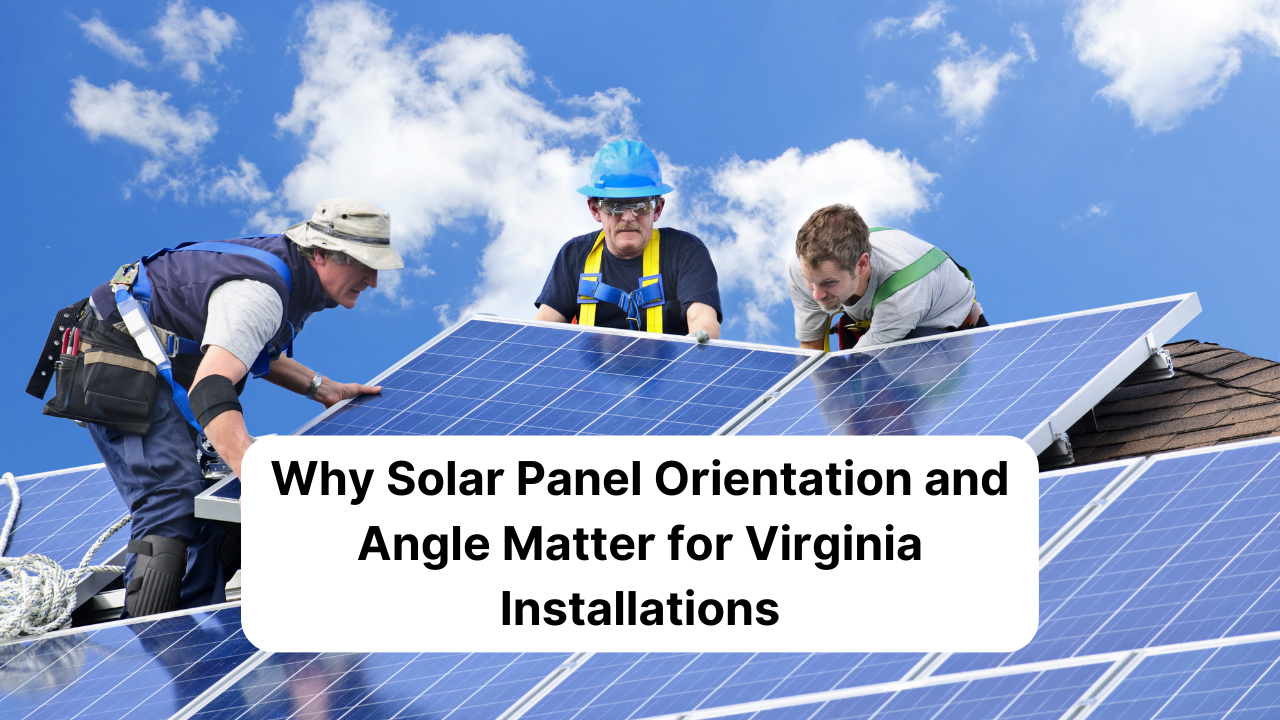
As electricity costs continue to rise and the demand for renewable energy grows, solar power is quickly becoming a top choice for homeowners in Virginia.
Not only can solar panels reduce utility bills and increase property value, but they also contribute to a cleaner, more sustainable environment.
However, to maximize the benefits of solar energy, the efficiency of your solar power system depends on several key factors—most importantly, the orientation and angle of your panels.
At Vesta Electric, a trusted full-service residential energy integrator, we've created this guide to help homeowners understand how panel positioning plays a critical role in optimizing energy production.
By fine-tuning these elements, you can ensure your solar investment delivers the best possible returns for your home and the planet.
Key Factors Influencing Solar Panel Efficiency
The efficiency of your solar panel system depends on how well the panels capture sunlight and convert it into electricity. Several factors influence this:
Roof Tilt
The tilt of your roof plays a significant role in determining the ideal angle for your solar panels. If your roof is flat, mounting systems can be used to create the necessary tilt for optimal efficiency.
For sloped roofs, the existing angle may already align well with the recommended panel tilt.
In Virginia, roofs with a moderate slope often provide a good starting point, but adjustments may still be needed for maximum energy production.
Geographic Latitude
Virginia’s latitude (around 37-39 degrees north) determines how high the sun appears in the sky during different times of the year.
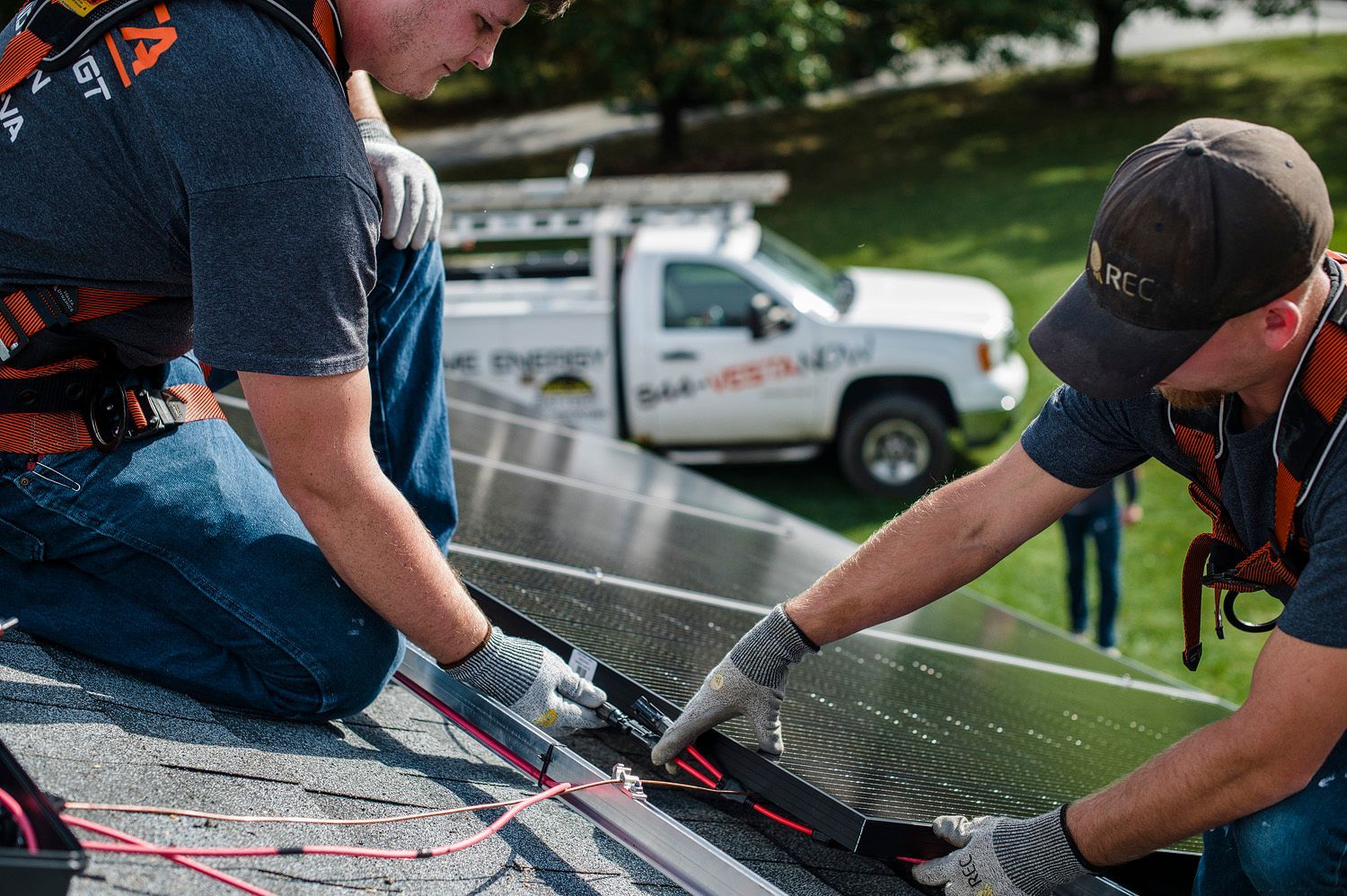
This affects the optimal tilt of your solar panels. Installers use this information to adjust the panel angle to capture the most sunlight throughout the year, ensuring balanced energy production across seasons and
making the most out of your solar panels.
Seasonal Variations
Seasonal changes in the sun’s position can impact energy production.
In winter, the sun is lower in the sky, requiring steeper panel angles to capture sunlight effectively. In summer, the sun is higher, so flatter angles work better.
Fixed installations aim for a compromise angle that performs well year-round, while adjustable systems allow seasonal tweaks for optimal energy capture.
Solar Panel Orientation
Keep reading to learn more about your the importance of your solar panel orientation.
Why It Matters and How to Optimize
Orientation describes the specific direction in which your solar panels are positioned.
In the United States, south-facing panels generally perform best because they receive the most sunlight throughout the day. Proper orientation is especially important in Virginia, where sunlight hours vary by season.
For homeowners, the goal is to install panels on a roof surface that gets maximum direct sunlight.
If south-facing space is unavailable or obstructed by trees, buildings, or other factors, east- or west-facing panels can still be effective. Technology such as microinverters or power optimizers can help reduce energy losses caused by non-ideal orientations or partial shading.
Solar Panel Angle
Keep reading to learn more about your the importance of your solar panel angle.
Determining the Best Angle Using Your Zip Codee
The ideal angle for your solar panels depends on your location, specifically your latitude. In Virginia, the optimal angle is close to the state’s latitude of 37-39 degrees.
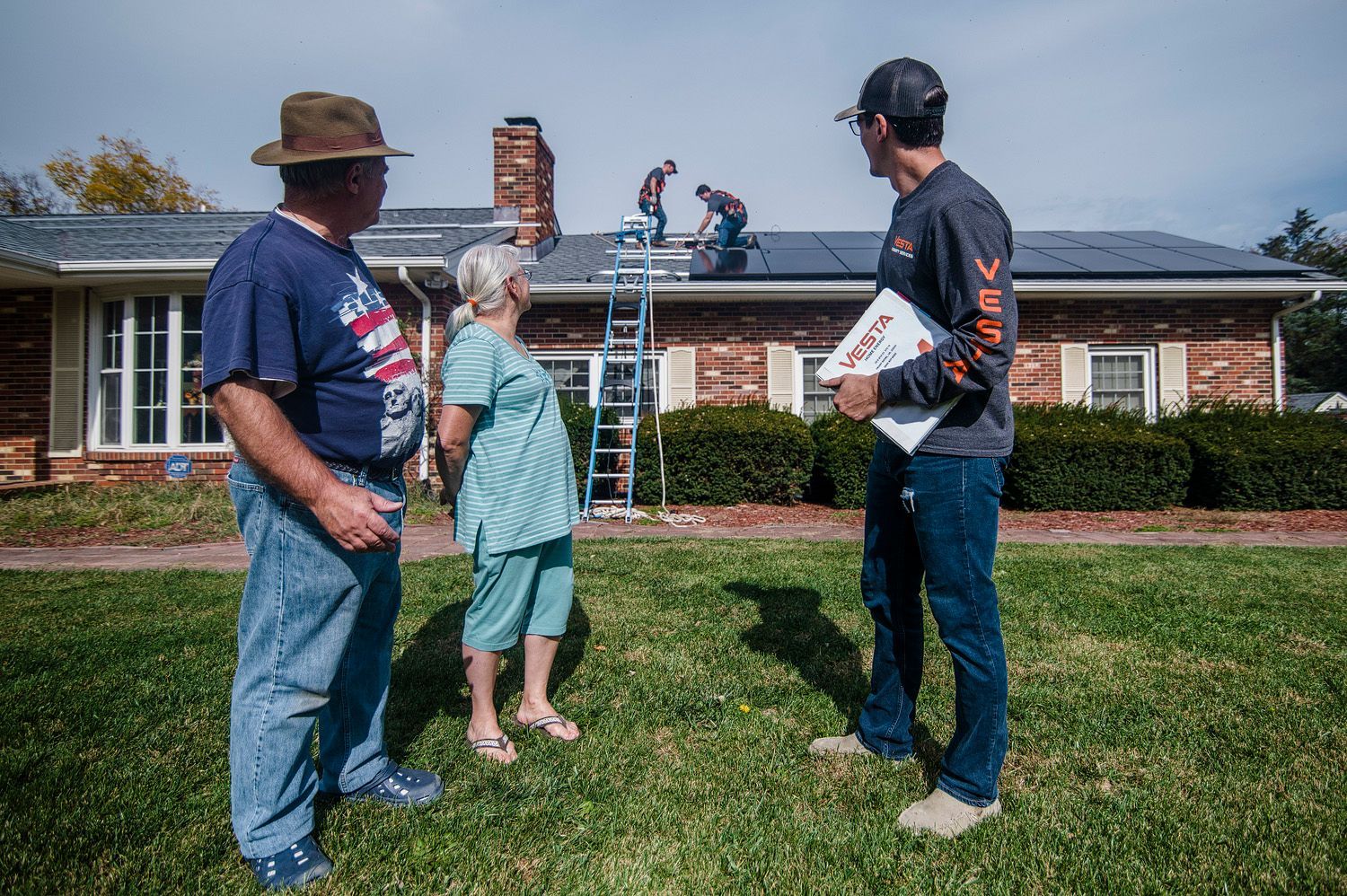
Installers use tools and software to refine this angle based on your exact zip code, roof characteristics, and environmental factors like shading.
For homeowners who want to maximize output, professional assessments can ensure your panels are tilted at the right angle for your location.
In many cases, a compromise angle is used to balance energy production across all seasons.
Seasonal Effects on Solar Panel Angles
Adjusting the angle of your solar panels seasonally can enhance efficiency:
Winter: A steeper angle (around 52-55 degrees) is better for capturing the lower sun.
Summer: A flatter angle (around 15-20 degrees) works well for the higher sun.
While seasonal adjustments can boost energy production, they require manual labor or specialized equipment, which may not be practical for all homeowners.
Fixed-angle systems are a simpler and more common solution that still provides excellent energy output year-round.
Which Is More Important: Angle or Orientation?
Both orientation and angle are critical for maximizing solar panel performance, but their relative importance depends on your property.
Orientation is often the most important factor. Panels that are poorly oriented (e.g., heavily shaded or facing away from the sun) will struggle to generate sufficient energy regardless of angle.
Angle is also essential but tends to be more forgiving. Minor deviations from the ideal tilt may reduce energy output slightly but won’t have as dramatic an impact as poor orientation.
For homeowners, addressing orientation first is key. Once the panels are properly oriented, the angle can be fine-tuned for optimal efficiency.
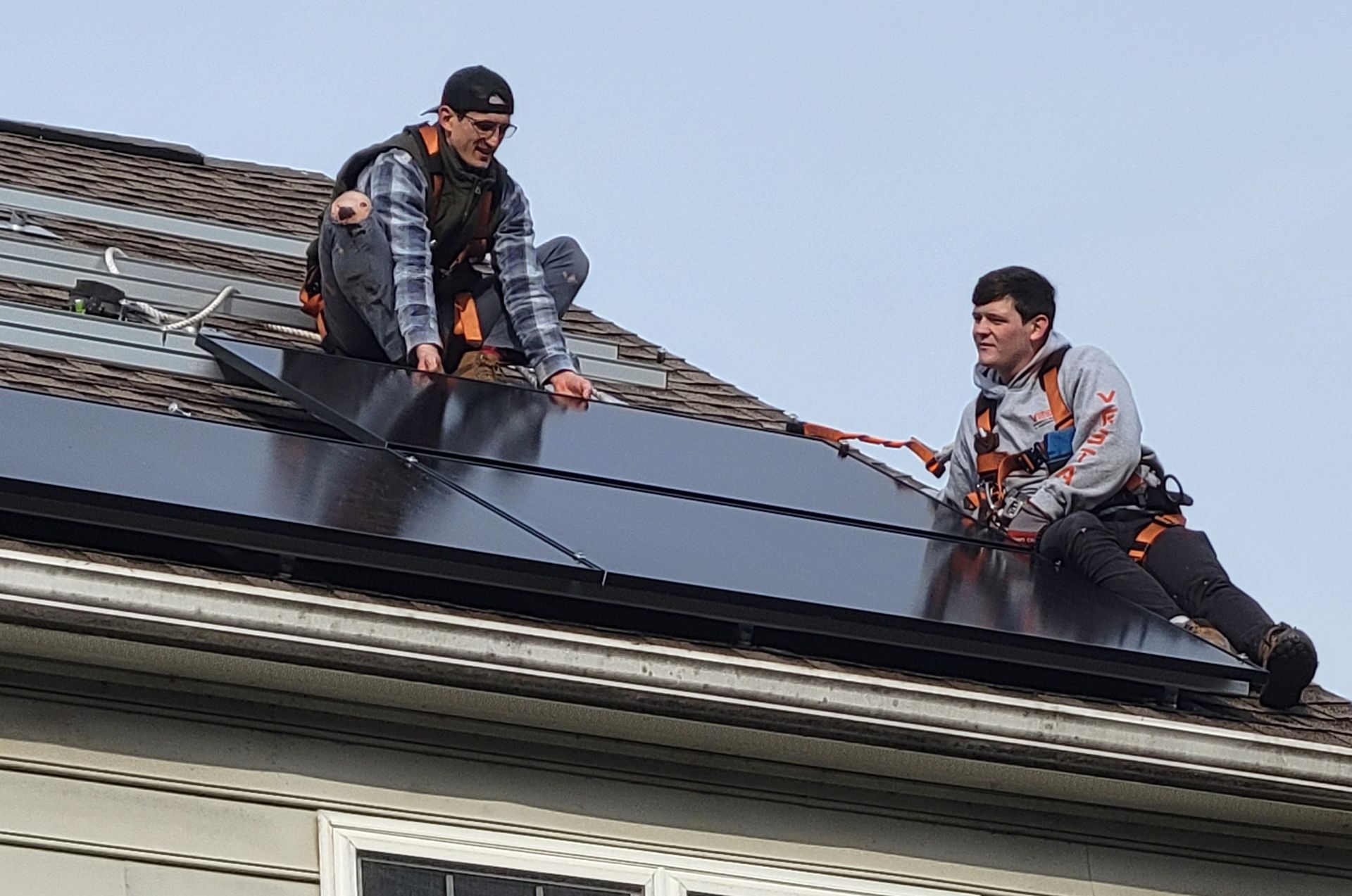
Frequently Asked Questions (FAQs)
Here are some frequently asked questions:
Can Solar Panels Work Effectively if My Roof Doesn’t Face South?
Yes, solar panels can still produce significant energy on east- or west-facing roofs.
While south-facing panels are ideal, modern systems with microinverters or power optimizers can mitigate energy losses in less-than-perfect orientations.
What’s the Benefit of Adjusting Panel Angles Seasonally?
Seasonal adjustments can increase energy output by 10-20%.
However, fixed-angle systems are often more practical for most homeowners, as the added cost and effort of seasonal adjustments may not always justify the energy gains.
How Do I Know if Shading Will Affect My Solar Panels?
Professional solar installers can assess your property for shading issues and recommend solutions.
These may include repositioning panels, trimming trees, or using optimizers to minimize shading impacts.
What Incentives Are Available for Solar Installations in Virginia?
Virginia homeowners can take advantage of federal tax credits, state incentives, and net metering programs, which help offset the cost of installation and increase the long-term savings from solar energy.
Bottom Line
Optimizing the orientation and angle of your solar panels is key to unlocking the full potential of your solar power system. Several factors, including roof tilt, geographic location, and seasonal changes, affect energy production.
While south-facing panels at an optimal tilt are generally the best choice, modern technology allows for flexibility, even in less-than-ideal conditions.
At Vesta Electric, we specialize in designing and installing custom solar systems that are perfectly suited to your home's unique characteristics.
From analyzing your roof’s orientation and pitch to leveraging cutting-edge technology for maximum efficiency, our expert team is dedicated to helping you make the most of your solar investment.
Ready to make the switch to solar? Contact Vesta Electric today to schedule a consultation and take the first step toward reduced energy bills and a more sustainable future.

